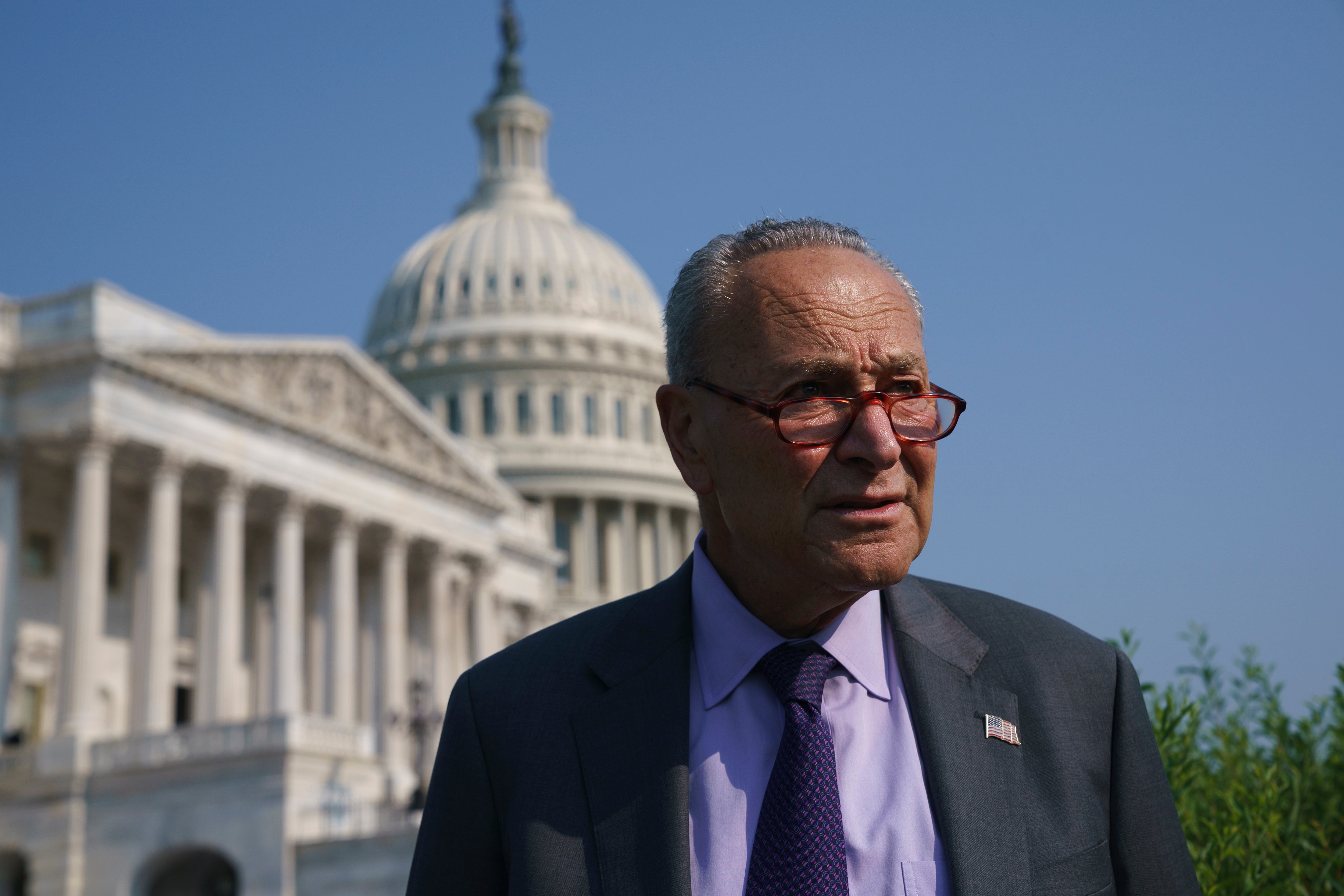Senate finalises trillion-dollar bipartisan infrastructure deal. Here’s what happens next
Text of bill will be made public within days

Your support helps us to tell the story
From reproductive rights to climate change to Big Tech, The Independent is on the ground when the story is developing. Whether it's investigating the financials of Elon Musk's pro-Trump PAC or producing our latest documentary, 'The A Word', which shines a light on the American women fighting for reproductive rights, we know how important it is to parse out the facts from the messaging.
At such a critical moment in US history, we need reporters on the ground. Your donation allows us to keep sending journalists to speak to both sides of the story.
The Independent is trusted by Americans across the entire political spectrum. And unlike many other quality news outlets, we choose not to lock Americans out of our reporting and analysis with paywalls. We believe quality journalism should be available to everyone, paid for by those who can afford it.
Your support makes all the difference.The Senate has finalised the text of a $1 trillion infrastructure deal with support from both parties, and is expected to pass the legislation soon.
On Sunday, multiple news outlets reported that the 2,701-page bill had finished being written, and staffers were seen carrying the massive stack of papers making up the legislation on Capitol Hill.
In remarks on the Senate floor, Majority Leader Chuck Schumer said that he planned to move the legislation to a final vote “in a matter of days”. Democrats believe that enough Republicans will support the bill’s final passage to avoid a filibuster, a prospect that appeared likely as Senate Minority Leader Mitch McConnell voted to proceed on the legislation last week.
The legislation will now face attempts at amendments in the Senate ahead of a vote on its final passage, but the true hurdle remains ahead in House, where numerous Democrats including both progressives and Speaker Nancy Pelosi have vowed to not take up the package for a vote or support its passage unless a separate, $3.5 trillion package dealing with social programmes, healthcare and other issues is passed via the reconciliation process and makes its way to the House.
That reconciliation bill itself is in jeopardy thanks to comments in recent days from Sen Kyrsten Sinema, an Arizona Democrat and centrist who said that she did not support the $3.5 trillion price tag; Democrats need her vote, as well as the vote of another swing-vote centrist, Sen Joe Manchin, to see the bill pass.
Democrats in the House, meanwhile, told The Independent as recently as Thursday that it wasn’t clear what specific reservations Ms Sinema had with the reconciliation package, making it difficult for a potential compromise to be reached.
The House is currently in recess while the Senate debates the infrastructure package, but could return to Washington if called on to pass either or both of the bills.
If passed, the bipartisan deal would provide more than $100 billion for the maintenance and construction of roads and bridges around the US, $50 billion for preparing critical structures to withstand the effects of climate change, nearly $40 billion for public transit projects, and $65 billion for the expansion of broadband in the US, among other provisions.
It would also represent a major legislative accomplishment for , who campaigned on reversing the trend of polarization in Washington but has yet to see a major piece of policy passed with support from the Republican Party.
The president made infrastructure his first major legislative priority following the passage of a Covid-19 relief bill earlier this year, but is facing pressure to spend political capital on other issues including voting rights as well.
Join our commenting forum
Join thought-provoking conversations, follow other Independent readers and see their replies
Comments